Turkish women protest Erdoğan's withdrawal from Istanbul Convention
Thousands of women on July 1 took to streets across Turkish cities in defiance against President Erdoğan's withdrawal from the Istanbul Convention. In Istanbul's İstiklal Avenue, police set up barricades and used tear gas to prevent women from marching.
Duvar English
Thousands of women took to the streets of Turkey's largest cities on July 1 to protest against the country's withdrawal from the Istanbul Convention, an international treaty to combat violence against women.
Amid a heavy police presence, women demonstrated in Istanbul's Beyoğlu district, and there were smaller protests in the capital Ankara, Aegean province of İzmir and elsewhere across the country.
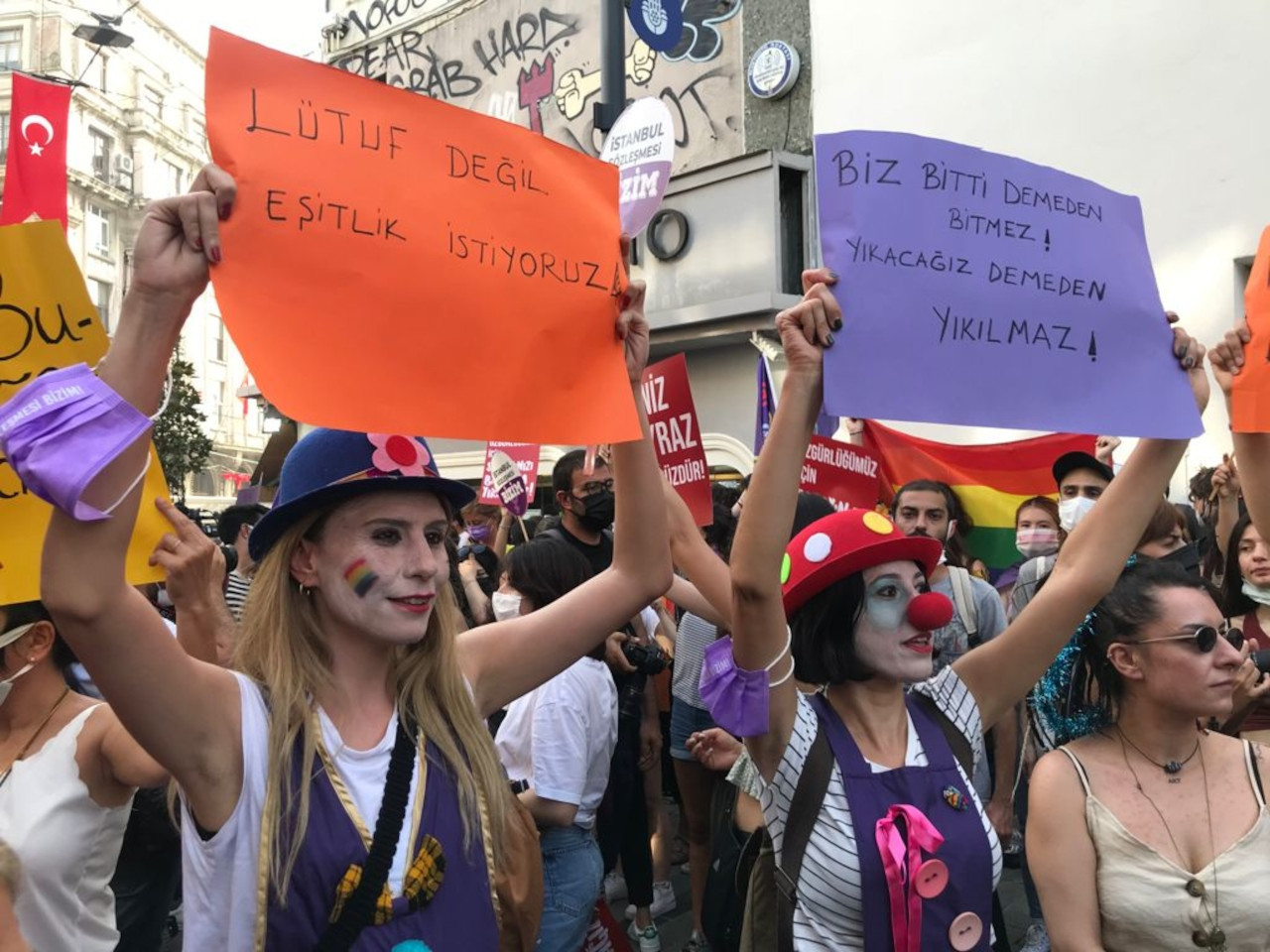
The protestors in Istanbul gathered at the Şişhane Square holding banners of "We are not giving up on the Istanbul Convention, it is not over for us" and shouting slogans of "Long live women solidarity," "We are not staying silent, we are not scared and we will not obey," and "This is only the beginning, we will continue struggling."
The police initialy did not allow the women to march towards the Taksim Square but eventually let them walk in small groups towards the Galatasaray Square.
Just 300 meters into their march, the police stopped the women and set barricades to prevent them from walking further. In response to women's slogans of "Open the barricade" and resistance to cross the barricades, the police suppressed the protest with tear gas.
#1TemmuzdaİsyanVar | Kadınlar Sokakta: İstanbul Sözleşmesi Bizim!
— Özgür Gelecek (@ozgur__gelecek) July 1, 2021
Türkiye'nin İstanbul Sözleşmesi'nden çekilmesi kararını kadınlar protesto ediyor.
Kadınlar, İstiklal caddesinde polis barikata yüklenen kadınlara gaz sıktı!
➡️https://t.co/XbgkeD5lEe#İstanbulSözleşmesi pic.twitter.com/VfgfCRYwlv
In Ankara, women gathered at the Sakarya Avenue emphasizing their determination that they will push the government to reverse its decision on the convention.
"We will not be silenced, we will not fear, we will not bow down," chanted women, with some holding banners of "We are not giving up on the Istanbul Convention."
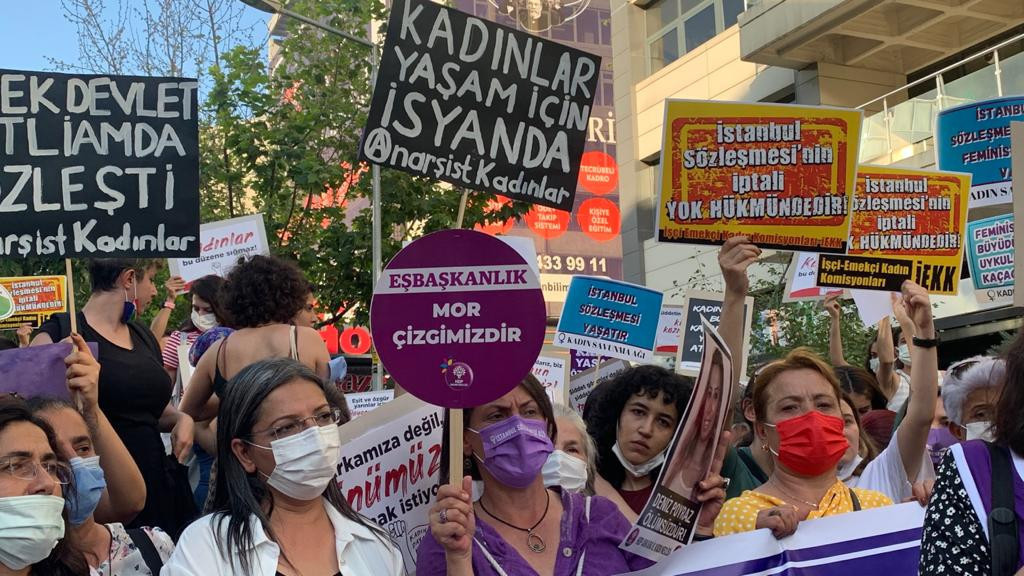
In İzmir, women gathered at Türkan Saylan Cultural Center from where they attempted to march towards Alsancak Ferry Port, but faced police barricades.
When women reacted against the barricades and shouted slogans of "Build the barricades for murderers, not for women," the police used tear gas and battered some of the protestors.
Despite the police intervention, the women eventually managed to break through the barricades and continued their demonstration in front of the Alsancak Ferry Port.
US says Turkey's pullout from treaty 'deeply disappointing'
Meanwhile, U.S. State Department spokesman Ned Price said on July 1 that Turkey's withdrawal from the convention is "deeply disappointing and a step backward for the international effort to end violence against women."
"We urge all states to strengthen their prevention of and response to all forms of gender-based violence," he wrote on his Twitter account.
Turkey’s withdrawal from the Istanbul Convention is deeply disappointing and a step backward for the international effort to end violence against women. We urge all states to strengthen their prevention of and response to all forms of gender-based violence.
— Ned Price (@StateDeptSpox) July 1, 2021
The protests came hours after President Recep Tayyip Erdoğan defended the withdrawal from the convention, negotiated in Turkey's biggest city in 2011 and designed to prevent and prosecute violence against women and domestic abuse.
Erdoğan announced the withdrawal in March, saying Turkey would use local laws to protect women's rights and defended his move on July 1 against those who, he said, portrayed it as "a step backwards" in the battle with violence against women.
"Our battle did not start with the Istanbul Convention and it will not end with our withdrawal from the treaty," he said.
Ankara's withdrawal triggered condemnation from both the United States and the European Union, and critics say it puts Turkey even further out of step with the bloc that it applied to join in 1987.
A court appeal to halt the withdrawal was rejected this week.
"We will continue our struggle," Canan Güllü, president of the Federation of Turkish Women's Associations, said on June 30. "Turkey is shooting itself in the foot with this decision."
She said that since March, women and other vulnerable groups had been more reluctant to ask for help and less likely to receive it, with COVID-19-fuelled economic difficulties causing a dramatic increase in violence against them.
One monitoring group has logged roughly one femicide per day in Turkey since a sharp rise five years ago.
Proponents of the convention and related legislation say more stringent implementation is needed.
Many conservatives in Turkey and Erdoğan's Islamist-rooted Justice and Development Party (AKP) say the pact undermines the family. Some also see the convention as promoting homosexuality through its principle of non-discrimination on grounds of sexual orientation.
Ditching the pact "will not lead to any legal or practical shortcoming in the prevention of violence against women," Erdoğan's office said on June 29 to the administrative court that rejected the appeal.
This month, Council of Europe Commissioner for Human Rights Dunja Mijatovic sent a letter to Turkish Interior Minister Süleyman Gül and Justice Minister Abdulhamit Gül expressing concern about a rise in homophobic language by some officials, some of which targeted the convention.

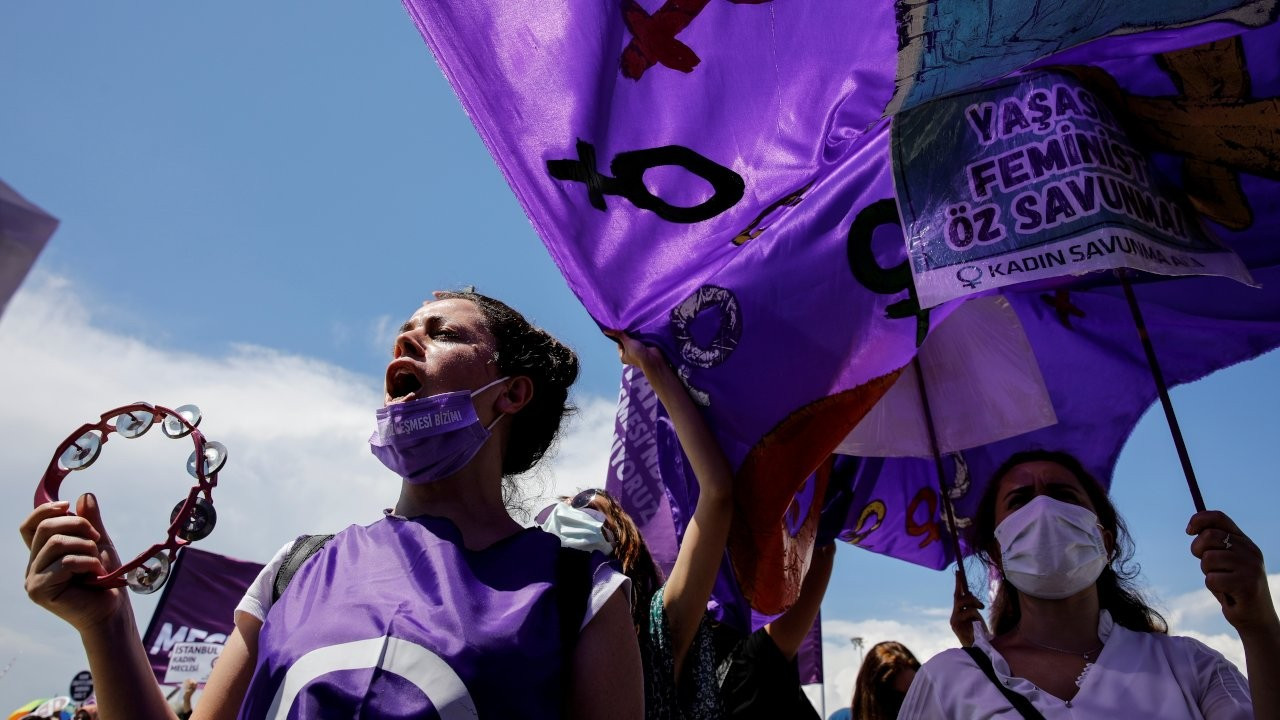 Turkey formally quits treaty to prevent violence against womenHuman Rights
Turkey formally quits treaty to prevent violence against womenHuman Rights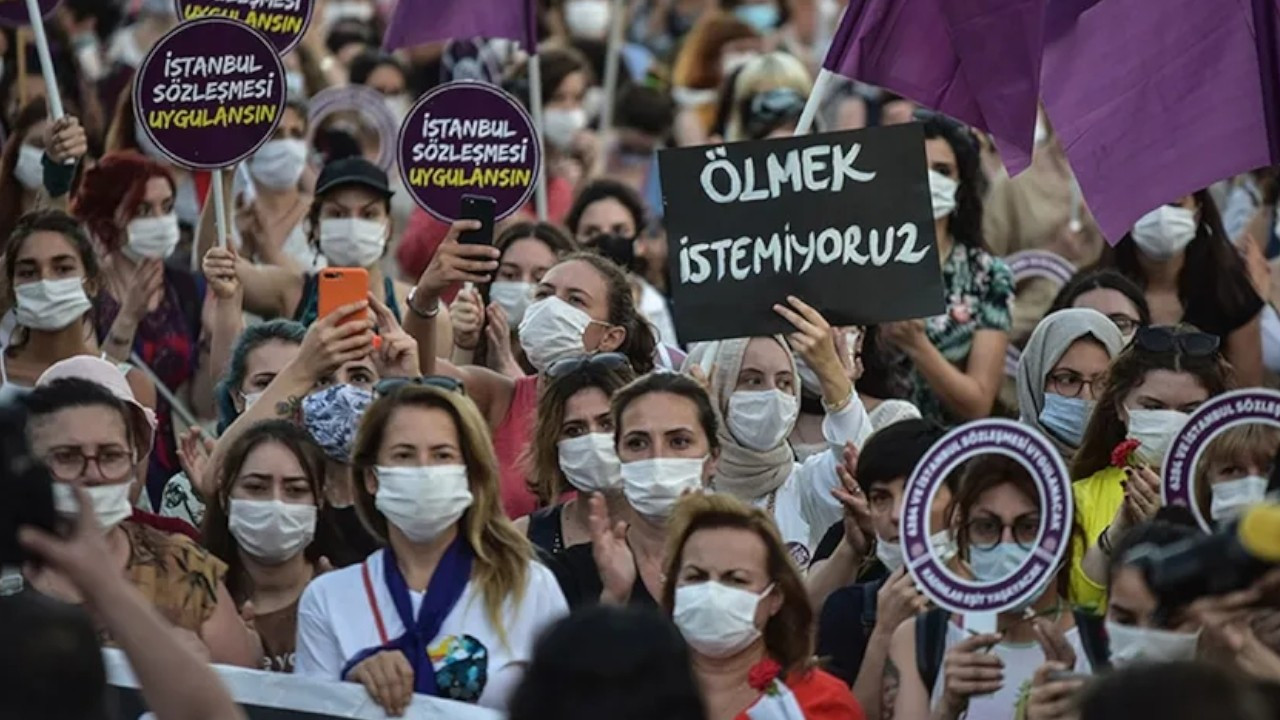 Turkey's top administrative court rejects appeal to reverse withdrawal from Istanbul ConventionHuman Rights
Turkey's top administrative court rejects appeal to reverse withdrawal from Istanbul ConventionHuman Rights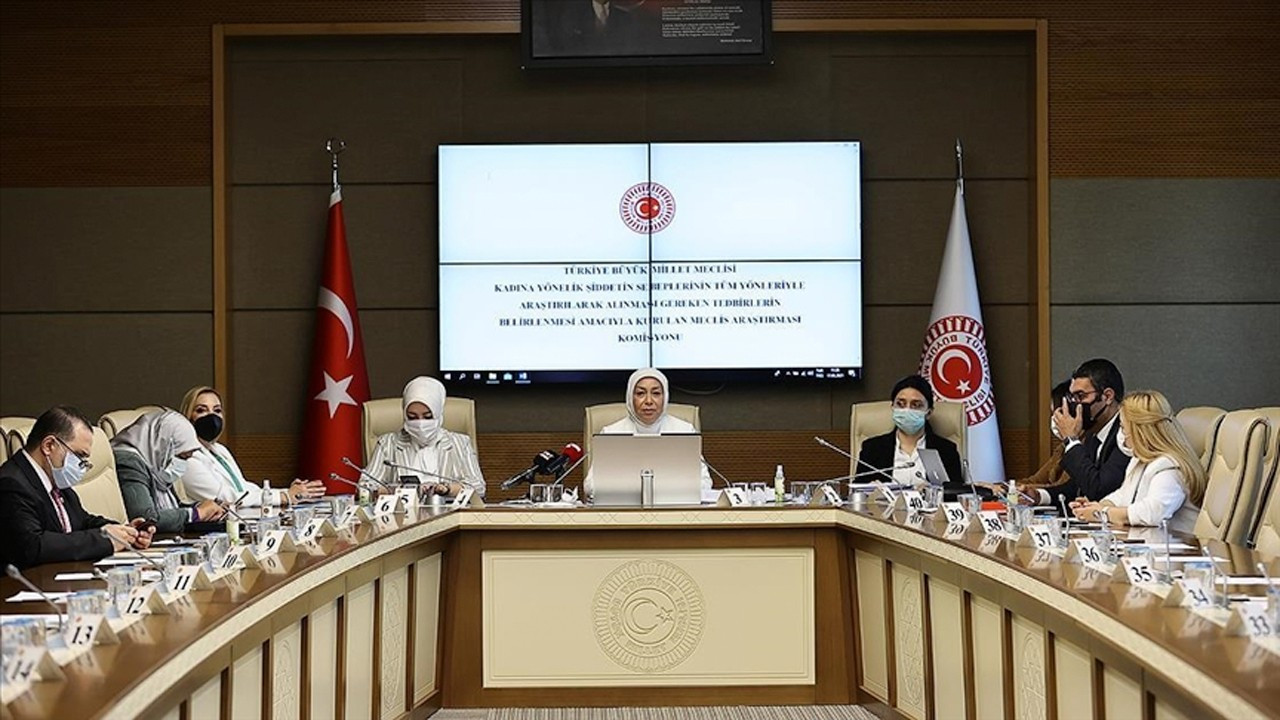 Opposition MPs quit AKP's violence against women committeeHuman Rights
Opposition MPs quit AKP's violence against women committeeHuman Rights